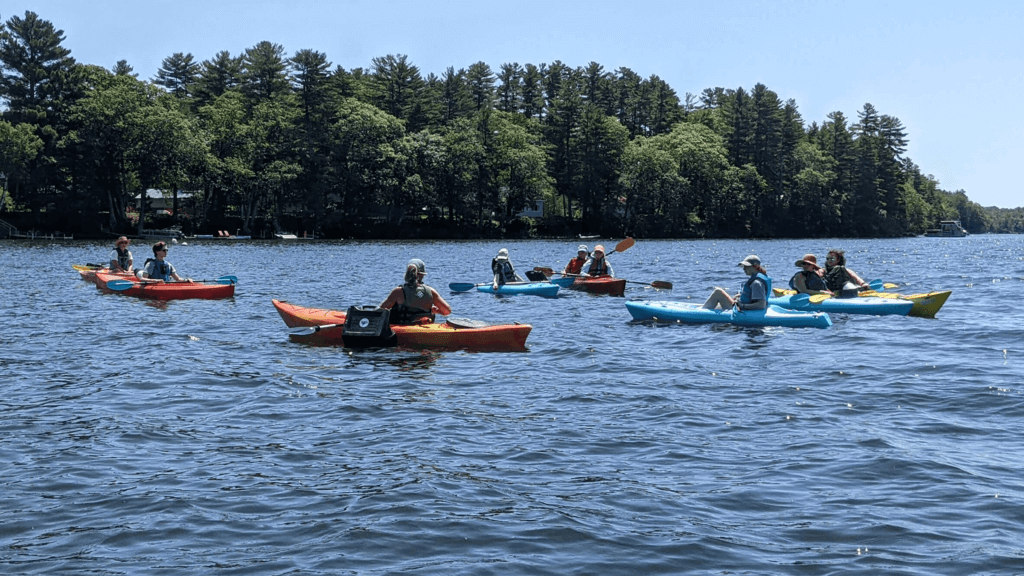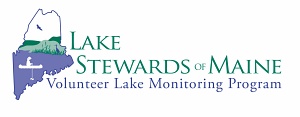
Quick Links
Latest News from LSM
Forms & Data Sheets
The IPP Travel Team
The goal of the Invasive Plant Patrol program has always been, and continues to be, the training of volunteers to survey their lakes for aquatic invasive plants. Several years into the program, Lake Stewards of Maine realized that while many lakes had active and engaged people able to dedicate the time to monitor the lake they lived on or near, other lakes had fewer residents or were so large that they were difficult to survey effectively.
The origins of the Travel Team spring from the very first Jump-Start mission to Moosehead Lake. Over six years, volunteers accompanied LSM staff to complete a full survey of one of the largest and most biologically diverse lakes in Maine. During those years they gained extensive experience in surveying techniques and aquatic botany, and were able to bring those skills back to the lake communities that they live in.
Time after time they have returned to assist with new Jump-Start missions and Rapid Response surveys. They have helped to train and mentor other volunteers that are interested in enhancing their skills, travelled to some of the most beautiful areas of Maine, and are doing what they can to protect our inland waters for future generations.
If you are interested in protecting your lake from aquatic invaders but aren’t sure how to start, want to get more hands-on experience with plant identification, or desire to explore Maine while helping out a good cause please consider signing up for the IPP Travel Team. We have many opportunities for volunteers at all skill levels.
IPP Jump-Start
Jump-Starts are week-long trips to a lake (or lakes) of special interest for the purpose of conducting a full screening survey. Jump-start trips also survey as a means of outreach to the existing lake community.
- Requirements
- Jump-Start volunteers must have attended or viewed the IPP 101 training course. Certification is not required.
- Various equipment, including: a shallow-draft boat, personal flotation device, appropriate gear for various outdoor conditions,
- What LSM Provides
- Housing – During LSM sponsored Jump-Starts, LSM will provide accommodations for team members. Accommodations can be anywhere from fully stocked to rustic, so we recommend joining the planning team for any Jump-Start you’re interested in.
- Training – LSM provides formal hands-on training for the local community which team members are welcome to join in on. There is also advanced training in plant taxonomy and surveying techniques which is a part of the Jump-Start structure.
- Advanced survey gear – Marker buoys, trunk and kayak scopes, weed weasels and more…
- What the Volunteer Provides
- Enthusiasm for the natural world
- Commitment
Rapid Response
Rapid Response surveys are done shortly after a new infestation has been found to assess the extent of the infestation and provide the DEP and local community with the data they need to mount a management or eradication effort. They often occur on short notice and are generally better for more experienced volunteers.
- Requirements
- Rapid Response volunteers must have attended or viewed the IPP 101 training course. Certification is not required.
- Various equipment, including: a shallow-draft boat, personal flotation device, appropriate gear for various outdoor conditions,
- What LSM Provides
- Training – LSM provides informal hands-on training for the team members.
- Advanced Survey Gear – Marker buoys, trunk and kayak scopes, weed weasels and other survey gear are available for volunteers to use during the Rapid Response.
- What the Volunteer Provides
- More man-power to complete a full survey of a new-found infestation
